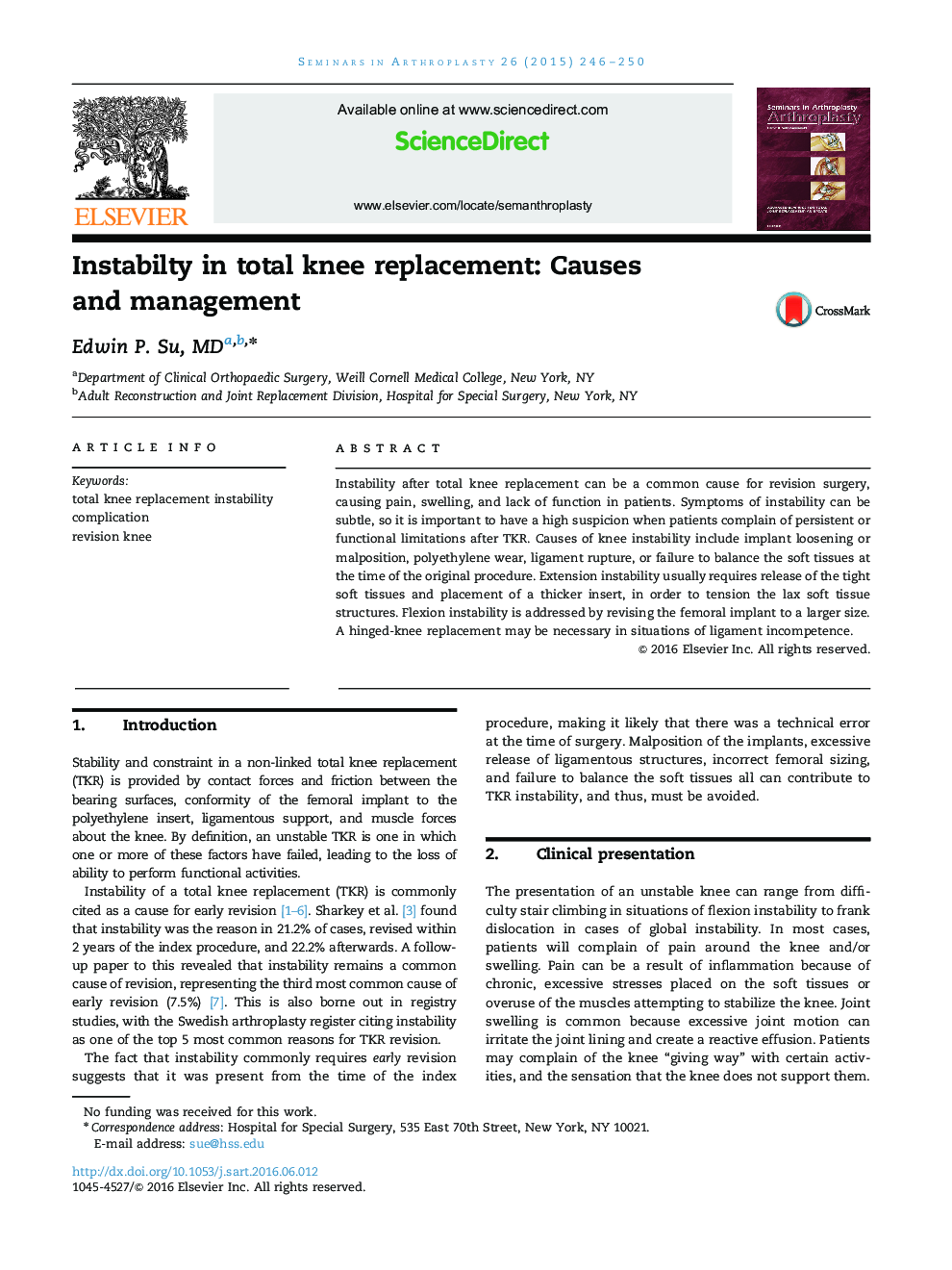| Article ID | Journal | Published Year | Pages | File Type |
|---|---|---|---|---|
| 4093727 | Seminars in Arthroplasty | 2015 | 5 Pages |
Instability after total knee replacement can be a common cause for revision surgery, causing pain, swelling, and lack of function in patients. Symptoms of instability can be subtle, so it is important to have a high suspicion when patients complain of persistent or functional limitations after TKR. Causes of knee instability include implant loosening or malposition, polyethylene wear, ligament rupture, or failure to balance the soft tissues at the time of the original procedure. Extension instability usually requires release of the tight soft tissues and placement of a thicker insert, in order to tension the lax soft tissue structures. Flexion instability is addressed by revising the femoral implant to a larger size. A hinged-knee replacement may be necessary in situations of ligament incompetence.
